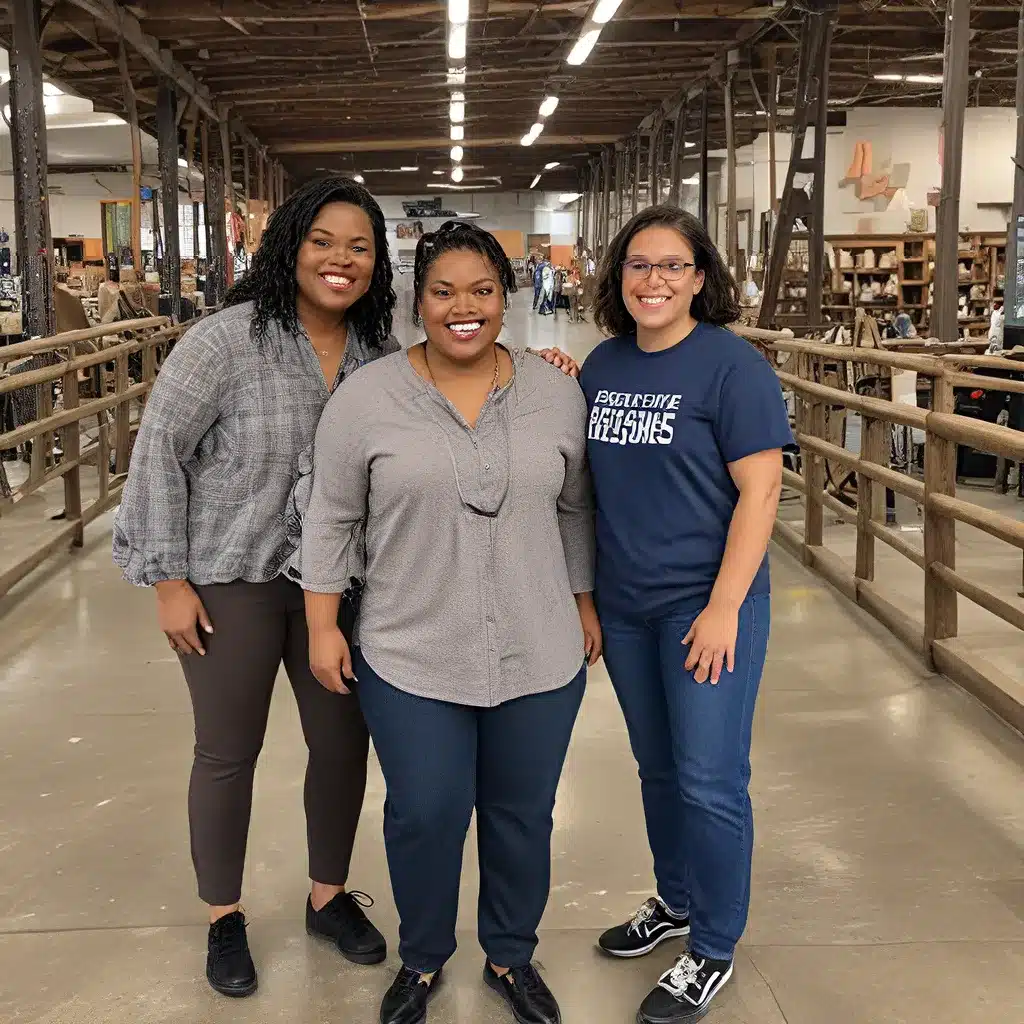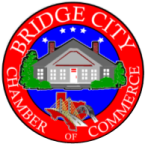
Cultivating an Ecosystem of Opportunity
Ah, Bridge City – the bustling heart of our region, where the diverse tapestry of entrepreneurship is woven with threads of resilience, innovation, and a relentless pursuit of inclusion. As I stroll through the vibrant streets, I can’t help but feel a sense of awe and admiration for the trailblazers who are bridging the gaps in our community, transforming challenges into opportunities.
One such visionary is Sheila Ellis-Glasper, the founder and president of the Black Entrepreneurs of the Flint Hills (BEFH). With 13 years of entrepreneurial experience under her belt, Sheila has witnessed firsthand the obstacles that minority business owners face when it comes to accessing capital. Her journey in search of financial assistance to expand her second venture led her to a sobering realization: the options for supporting minority businesses were severely limited, especially for non-residents like herself.
Undeterred, Sheila embarked on a mission to create a solution. She established BEFH, a groundbreaking initiative aimed at addressing the capital accessibility challenges faced by Black entrepreneurs in the region. “It’s challenging being the first,” Sheila reflects, “but we let the work of our organization speak for itself.”
Bridging the Capital Gap
The capital conundrum is a persistent challenge that has plagued minority entrepreneurs nationwide. Statistics confirm that while Black entrepreneurs, especially Black women, are the fastest-growing group of entrepreneurs in the nation, they receive the least funding. Black-owned businesses are twice as likely to be denied loans compared to their white counterparts, and minorities often face higher interest rates and other banking hurdles.
Sheila’s own clients have faced similar obstacles, with one child care center owner resorting to using their parents’ retirement funds as collateral after 12 banks rejected their loan application. “Such extreme measures are not uncommon,” Sheila laments, “highlighting the desperate need for improved capital accessibility.”
Determined to bridge this gap, Sheila initiated discussions with minority entrepreneurs in the Flint Hills region, strategizing on how to find, share, and bring resources to their community. The result? The establishment of BEFH, an organization that offers culturally competent training, mentorship, technical assistance, and access to capital, all with the aim of addressing the racial wealth divide within the region.
Forging Powerful Partnerships
BEFH’s mission extends beyond just providing resources; it’s about fostering a collaborative ecosystem of support. The organization joined the National League of Cities’ (NLC) City Inclusive Entrepreneurship (CIE) Program, partnering with Collab Capital, a venture capital firm, and other experts to explore new debt solutions and prepare Black-owned businesses for capacity financing.
“Because we’re rural, we really must pull all resources together to effectively serve our members,” Sheila emphasizes. This collaborative approach has led to the establishment of relationships with lending partners, the creation of educational workshops, and the development of a comprehensive survey to identify patterns in capital accessibility.
The research findings from this survey will be shared with city leaders, banks, constituents, and supporters, with the aim of fostering a stronger, more inclusive community. As Sheila puts it, “We continue to educate the community about the disparities in business owners while recognizing and supporting them, which helps recruit and retain entrepreneurs of color to the region and garner support.”
Empowering the Digital Divide
While the capital gap may be the most visible challenge facing minority entrepreneurs, another pressing issue lurks in the shadows: the digital divide. Cities like Detroit have long grappled with this divide, where a staggering 40% of homes lack access to high-speed internet, leaving many K-12 students unable to consistently access their schoolwork from home during the COVID-19 pandemic.
But in Bridge City, a collaborative effort is underway to tackle this challenge head-on. The city has launched a $23 million initiative, Connect 313, to provide connected devices and internet access for all 51,000 public school students within the 2020-21 academic year. This ambitious program brings together a diverse coalition of partners, including the local energy company, foundations, the mayor’s office, and the school district, all working towards a common goal of digital equity.
At the helm of this initiative is Joshua Edmonds, Bridge City’s first-ever Director of Digital Inclusion. “We’re building an operation that exists at the intersection of technology and opportunity,” Joshua explains, “using data-driven, community-first methodologies to activate bold, innovative partnerships and address multiple digital divides.”
Through strategic investments, neighborhood technology hubs, real-time data collection, and the empowerment of digital literacy ambassadors, the Connect 313 initiative is making tangible strides in bridging the digital divide. And the private sector is stepping up to the plate, with partners like Quicken Loans playing a pivotal role in the development and implementation of this transformative program.
Inclusive Entrepreneurship in Action
As I explore the bustling streets of Bridge City, I can’t help but marvel at the diverse tapestry of businesses that are thriving here. From the vibrant artist collective showcasing local talent to the cutting-edge tech startup founded by a visionary woman of color, these enterprises are not just sources of economic vitality, but beacons of inclusion and opportunity.
Take, for instance, the story of Blossom Boutique, a women’s clothing store that has become a staple in the community. Owned and operated by Amelia Flores, a first-generation Latina entrepreneur, Blossom Boutique has not only carved out a niche in the market but also serves as a gathering place for women of all backgrounds.
“When I first started this business, I wanted to create a space where women could feel empowered, celebrated, and connected,” Amelia shares. “It’s not just about selling clothes; it’s about building a community, one stitch at a time.”
Amelia’s journey has not been without its challenges, but she has found strength in the support of organizations like BEFH and the Bridge City Chamber of Commerce. The chamber, which serves as a hub for local businesses, has been instrumental in connecting Amelia with resources, mentorship, and networking opportunities that have helped her business thrive.
Across the city, there are countless other stories of inclusive entrepreneurship, each one a testament to the power of resilience, innovation, and a deep commitment to building a more equitable future. From the technology-driven social enterprise that’s revolutionizing waste management to the family-owned restaurant celebrating the culinary traditions of diverse cultures, these businesses are not just creating jobs and driving economic growth – they’re cultivating a sense of belonging and empowerment in the community.
Fostering a Culture of Inclusion
As I delve deeper into the vibrant entrepreneurial ecosystem of Bridge City, I can’t help but be struck by the palpable sense of community and the unwavering dedication to inclusion. It’s a culture that permeates every aspect of the city’s business landscape, from the grassroots initiatives championed by BEFH to the collaborative efforts of the Bridge City Chamber of Commerce.
The Cherie Blair Foundation for Women’s recent audit on inclusive entrepreneurship has shed light on the critical role that community-driven organizations and strategic partnerships can play in fostering an environment where diverse business owners can thrive. And in Bridge City, these elements are woven into the very fabric of the entrepreneurial ecosystem.
As I listen to the stories of the trailblazers who have overcome daunting challenges, I’m reminded of the power of perseverance and the transformative impact of a community that champions one another. From Sheila’s unwavering commitment to addressing the capital gap to Amelia’s vision of empowering women through her boutique, the common thread is a relentless pursuit of inclusion and a belief that when we bridge the divides, we unlock limitless possibilities.
In Bridge City, the future of entrepreneurship is not just about growth and profitability – it’s about creating a more equitable, representative, and vibrant business landscape that reflects the diversity of the community. And as I leave, I can’t help but feel a renewed sense of optimism, inspired by the resilience and innovation that are reshaping the face of entrepreneurship in this remarkable city.


